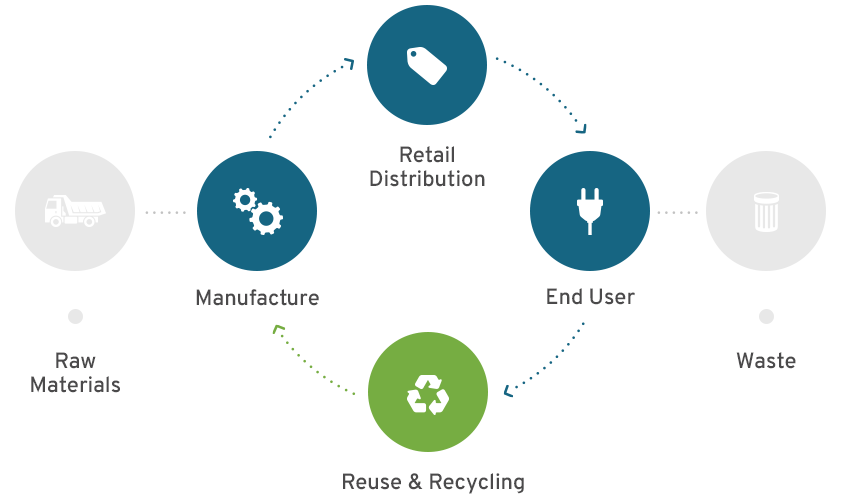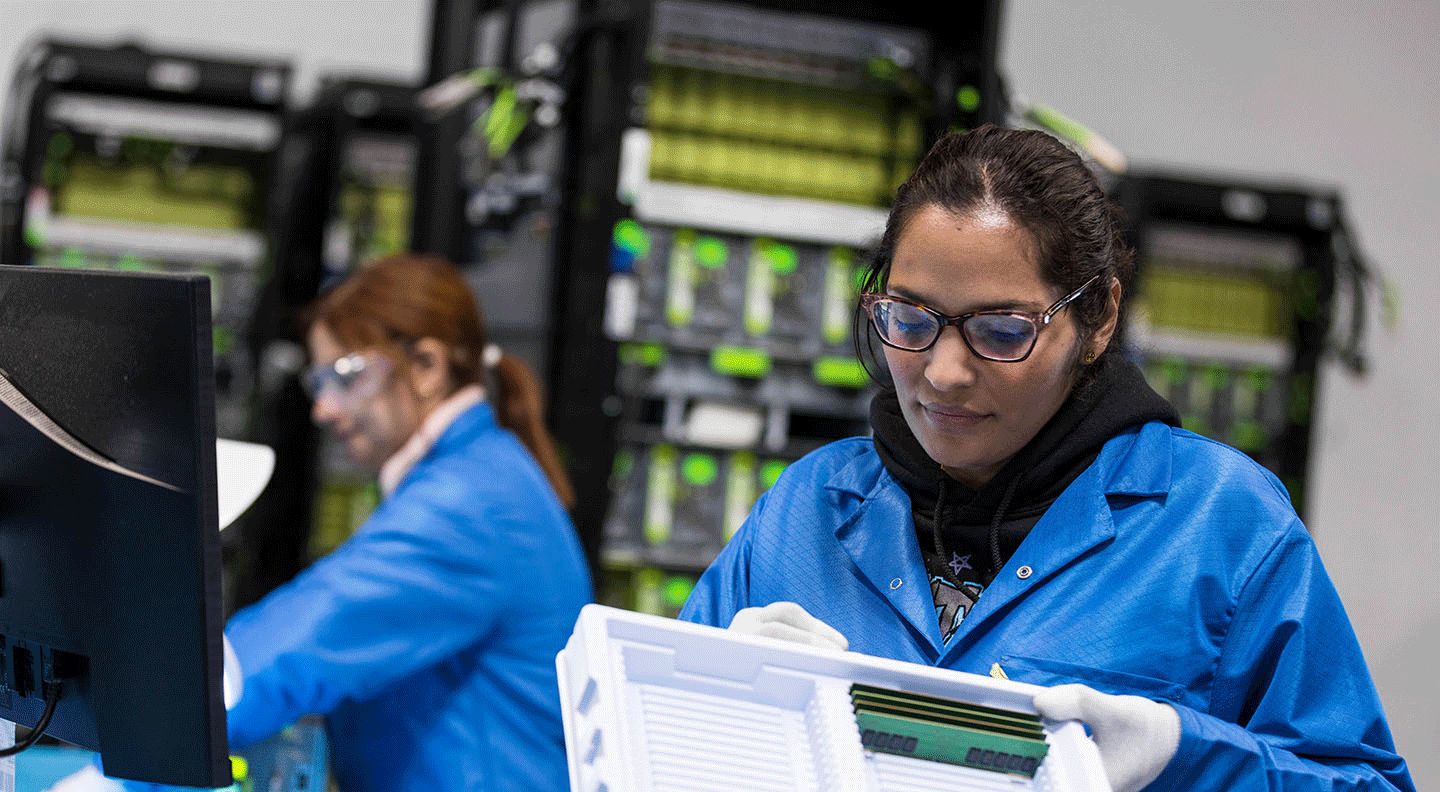The Open Compute Project (OCP) is a collaborative community founded in 2011 to focus on redesigning hardware and software technology to support the scalability benefits of open source and open collaboration within data centers and the IT industry. Expanding on the internal work initiated by Facebook in 2009, the OCP’s mission is to provide a structure where “organizations can share their intellectual property with others and encourage the IT industry to evolve.”
How SLS Transforms Redundancy to Resilience – Circular Economy in Data Centers
OCP equipment primarily serves hyperscale data centers, where it plays a pivotal role in delivering high-performance computing solutions. However, as cloud providers upgrade their infrastructure, older OCP equipment often becomes redundant. This is where Sims Lifecycle Services (SLS) steps in. SLS refurbishes and resells retired OCP equipment for use in less intensive workloads, typically Tier II and Tier III data centers and enterprise companies. This approach enables these organizations to acquire high-performance servers and components at a fraction of the cost, contributing to substantial cost savings and extended product lifecycles.
In addition to cost-efficiency, sustainability is a key tenet within the OCP. Typically, around 70% of emissions during a server’s lifetime are already emitted through the server manufacturing process. By extending the lifecycle of servers and components, carbon emissions are significantly avoided. This aligns with the core principles of the circular economy, emphasizing reuse, refurbishment, remanufacturing, and recycling.

Let’s take a closer look at the various ways in which SLS’s services in reusing OCP equipment is driving sustainability within the data center industry:
- Economic Benefits: In addition to providing environmental benefits, circular economy principles also make economic sense. Enterprises and data centers purchasing refurbished OCP equipment can access high-performance hardware without the hefty price tag of brand-new equipment, thereby enhancing the economic sustainability of data centers.
- Value Recovery: Reuse has a significant impact on value recovery. It ensures that valuable materials and components are not prematurely discarded, thus maximizing their utility and value.
- Resource Conservation: Circular economy practices champion resource conservation. SLS’s approach to reusing servers and components minimizes the consumption of raw materials, contributing to a more sustainable and responsible use of our planet’s resources.
- Carbon Emissions Avoided: One of the most vital aspects of the circular economy in data centers is its direct impact on carbon emissions. Extending the lifecycle of servers and components reduces the need for the energy-intensive production of new hardware. This, in turn, decreases Scope 3 emissions for data centers related to the manufacturing processes including emissions such as transportation stemming from global nature of the semiconductor supply chain.
- Reducing E-Waste: By refurbishing and reselling OCP equipment, SLS minimizes harmful e-waste generation. Electronic waste poses a significant environmental challenge, with the disposal of obsolete hardware contributing to pollution and the many negative consequences associated with virgin material sourcing such as acidification, ecotoxicity, negative influence on water resources and wildlife diversity destruction. The circular economy approach actively combats this problem by ensuring that hardware is used to its fullest potential before being recycled.
- Reduction of Virgin Critical Materials: Hard disk drives (HDDs) and Lithium-ion uninterrupted backup batteries are integral components of data center infrastructure. However, the manufacturing of HDDs and Lithium-ion batteries involves the use of rare earth metals and other critical, sparse materials, the manufacturing of which is a sizeable source of Scope 3 emissions. Reusing HDDs prolongs their lifespan, reducing the need for additional rare earth metal extraction and the manufacture of new drives, while recycling or reusing Lithium-ion batteries helps to preserve production capacity of critical materials such as Lithium, Cobalt and Nickel.
Conclusion
By repurposing and reselling OCP equipment, SLS not only makes high-performance servers more accessible but also contributes to the avoidance of carbon emissions, reduction of e-waste, and resource consumption. The value of this closed-loop system extends beyond economic benefits, as it aligns with the principles of sustainability and environmental responsibility.
As we continue to grapple with the challenges of climate change and resource scarcity, services like the OCP serve as models of sustainability, showcasing how the tech industry can lead the way in adopting circular economy practices. By embracing reuse, refurbishment, remanufacturing, and recycling, we can collectively reduce our carbon footprint, conserve valuable resources, and pave the path toward a more sustainable future for data centers and beyond.
Attending the OCP Global Summit?
Several members of our leadership team will be attending.
OCP Equipment
Can your organization benefit from SLS refurbishment services for used OCP equipment?
